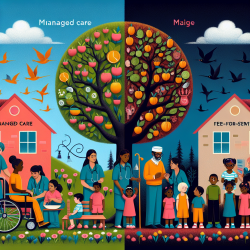In the realm of special education and therapeutic interventions, the application of effective verbal psychotherapeutic techniques is paramount. The research article "Measuring Verbal Psychotherapeutic Techniques—A Systematic Review of Intervention Characteristics and Measures" by Gumz et al. (2015) provides valuable insights into the assessment and application of these techniques. Here, we explore how practitioners can enhance their skills by implementing the outcomes of this research.
Understanding Verbal Psychotherapeutic Techniques
The systematic review conducted by Gumz and colleagues highlights the importance of verbal techniques in psychotherapy. Despite their significance, these techniques often lack a standardized typology, which hampers consistent application and assessment. The study reviews 34 measures used in clinical research, evaluating their theoretical foundation, research goals, assessment modes, and psychometric properties.
Key Findings and Recommendations
The review identifies several critical issues and recommendations for practitioners:
- Systematization of Techniques: There is a need for a consensus on the definition and operationalization of verbal techniques. Practitioners should familiarize themselves with the four hierarchical levels of systematization suggested by the authors: distinguishing therapeutic dialogue techniques from broader procedural techniques, differentiating verbal from non-verbal techniques, recognizing directly observable features, and identifying latent features.
- Assessment and Rating: Practitioners should consider both global and microanalytic assessment modes. While global assessments provide a broader view of therapy sessions, microanalytic assessments offer detailed insights into specific interventions. The review emphasizes the importance of clear definitions and explicit coding manuals to ensure reliable and valid ratings.
- Psychometric Properties: Reliable and valid measures are crucial for effective application. The review found that only two measures, the Comparative Psychotherapy Process Scale (CPPS) and the Yale Adherence and Competence Scale (YACS), met the highest standards of objectivity, reliability, and validity. Practitioners should prioritize these measures in their practice.
Practical Application for Practitioners
To enhance their skills, practitioners can:
- Adopt a Multitheoretical Approach: Utilize multitheoretical scales like the CPPS and YACS to assess and compare different therapeutic orientations. This approach allows for a comprehensive understanding of various techniques and their efficacy.
- Engage in Continuous Learning: Attend conferences, webinars, and workshops to stay updated on the latest research and methodologies in verbal psychotherapeutic techniques. Networking with other professionals can also provide valuable insights and practical tips.
- Implement Evidence-Based Techniques: Apply the techniques that have been proven effective through empirical research. Focus on the specific features of verbal techniques, such as form, temporal focus, thematic content, and latent characteristics, to ensure a targeted and effective intervention.
Encouraging Further Research
The review underscores the need for ongoing research to refine and validate verbal psychotherapeutic techniques. Practitioners are encouraged to contribute to this body of knowledge by conducting studies, sharing their findings, and collaborating with researchers.To read the original research paper, please follow this link:
Measuring Verbal Psychotherapeutic Techniques—A Systematic Review of Intervention Characteristics and Measures.










